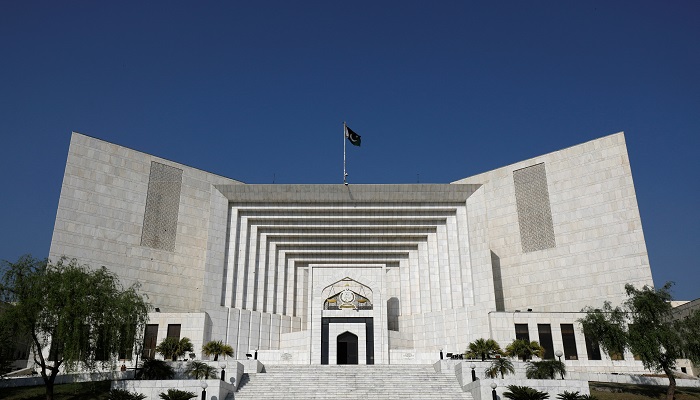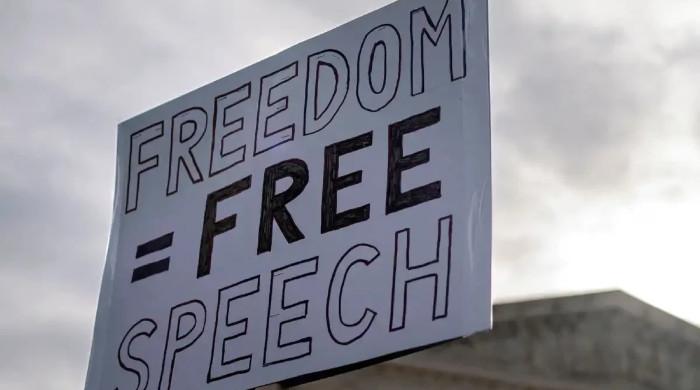What 'trials' await new CJP
While justices are best placed to judge their conduct, history remembers them for their rulings and behaviour
October 24, 2024

Although the 2007 judicial movement, led by the then-deposed chief justice Iftikhar Muhammad Chaudhry, lit up hopes for an “independent judiciary,” the dream was eventually snuffed out. This was primarily due to two reasons: the glamourisation of the judiciary and judicial overreach, which made the judicature both politicised and polarised. Was the 26th Constitutional Amendment the answer, and that too in such haste? Perhaps not. It was more like political overreach versus judicial overreach.
The judicial crisis is far from over, even with the appointment of Justice Yahya Khan Afridi as the new Chief Justice of Pakistan, following the retirement of Justice Qazi Faez Isa. The challenges for the new CJP will be far different from those faced by his predecessors. He may not deal with cases having political or constitutional significance, and his “Court No 1” may not get the same " media attention" as it did during the 2007 “lawyers movement.” Likely, such matters will now be handled by constitutional benches. However, he may face internal challenges within the apex judiciary, which still seems to be a “divided house.”
Can he take steps to unify the judges and prevent further judicial overreach?
Parliament, too, faces its challenges. The 26th Constitutional Amendment was rushed through the parliament, seemingly with the hidden agenda of barring Justice Mansoor Ali Shah from becoming CJP on October 25. This political overreach seems to have countered judicial overreach, pitting the two pillars of the state into direct conflict.
Justice Afridi is the first Chief Justice of Pakistan to be named from among the three senior-most judges of the Supreme Court by the Parliamentary Committee, as outlined in the newly passed 26th Constitutional Amendment. This marks a departure from the post-2007 standard procedure, which dictated that the senior-most judge would become Chief Justice.
Justice Mansoor Ali Shah in a recent letter to the CJP on October 23, as head of the Supreme Court's Practice and Procedure Committee, refused to join any special bench unless the full court decides on the constitutional amendment. This suggests the division within the Supreme Court will persist. Justice Shah, who is leaving for Saudi Arabia to perform Umrah, has also indicated his unwillingness to attend the full court reference for the outgoing CJP Isa on Friday (October 25) or the oath-taking ceremony of the incoming top judge of the Supreme Court on Saturday.
While the new CJP may easily transfer the burden of constitutional cases as well as appeals to constitutional benches, including the implementation of the majority decision on “reserved seats,” it is yet to be seen if he will address the letter written by six Islamabad High Court judges to Justice Isa, which raised concerns about alleged threats from intelligence agencies.
Another daunting task for the new CJP is to engage with Bar Associations and lawyers, many of whom have voiced dissent against the 26th Amendment. While several Bars welcomed his appointment, the legal community remains divided on the issue. How the new CJP handles this situation is going to be crucial.
Compared to his predecessors, he has more time to focus on judicial reforms, particularly at the lower court level, which the previous CJP failed to address. Even the 26th Amendment has not tackled this issue.
The dilemma facing Pakistan's judicial system has reached a point where two of its most competent judges —Justice Yahya Afridi and Justice Mansoor Ali Shah— will not be hearing constitutional cases, as they will not sit on the newly established constitutional benches. Both judges are highly regarded by lawyers and barristers of the superior courts. While some may disagree with their rulings, their professional and personal integrity is beyond doubt. It is therefore a loss for the judiciary that neither will be involved in constitutional matters under the new system.
On Wednesday, Justice Mansoor Ali Shah referred a petition before him to the constitutional bench. "There will be confusion and questions when cases come before the Supreme Court," said Munir Malik, former President of the Supreme Court Bar Association and an eminent lawyer.
Admitting his opposition to the 26th Constitutional Amendment, Malik said, “It is also true that judicial overreach during the tenure of successive chief justices, from Chaudhry to Justice Isa, damaged the dream of a fully independent judiciary.”
"Yes, in some political and constitutional cases, judicial overreach was evident and should have been avoided," he added.
However, Malik argued that the answer was not a hurriedly passed constitutional amendment. He made these remarks in response to a question I asked him during a meeting at the Karachi Press Club.
Malik had led the 2007 movement for the independence of the judiciary after former military dictator General Pervez Musharraf sacked Chief Justice Chaudhry for refusing to resign under pressure.
In contrast to Justice Mansoor Ali Shah’s decision to refer a case to the constitutional bench, the Sindh High Court continued taking up such cases, arguing that since the constitutional benches had not yet been constituted, it could proceed. The next few weeks and months will be telling, as it will be interesting to see how many cases are transferred from the Supreme Court or High Courts to the constitutional benches. While this may ease some of the burden, hundreds of thousands of cases remain pending in the lower courts. If the new CJP succeeds in introducing critical judicial reforms at the lower court level, he will be remembered in judicial history for genuinely reforming the judiciary during his three-year term.
It will be worth watching who will sit on the first-ever constitutional bench. If the decision to constitute these benches is delayed, constitutional cases will continue to pile up.
The dream of two pillars of the state —judiciary and media— standing strong and independent, as they did in 2007, has been compromised by politicisation, polarisation, and alleged interference from powerful quarters in both sectors.
Only time will tell whether the 26th Amendment will pave the way forward or take two steps backwards. Will the judiciary become more independent or more subservient to the executive? All pillars of state must reflect on the 2007 movement and assess whether the judiciary has undergone significant reforms since 2009 or whether “Court No 1” has become too ‘glamourised’ by TV tickers and breaking news.
Eventually, time will determine how judicial history will remember successive CJPs, particularly those appointed in the post-2007 era, and how their rulings will be referenced. While jurists are best placed to judge their own conduct, history remembers them for both their rulings and behaviour.
Had the country’s most controversial Governor-General, Ghulam Mohammad, appointed the senior-most judge, Justice Akram, from East Pakistan, instead of Justice Munir, Pakistan’s judicial history might have unfolded differently. Munir introduced the "law of necessity" to legitimise unlawful rule, a doctrine perpetuating political instability.
The writer is a columnist and analyst for GEO, Jang, and The News
X: @MazharAbbasGEO









